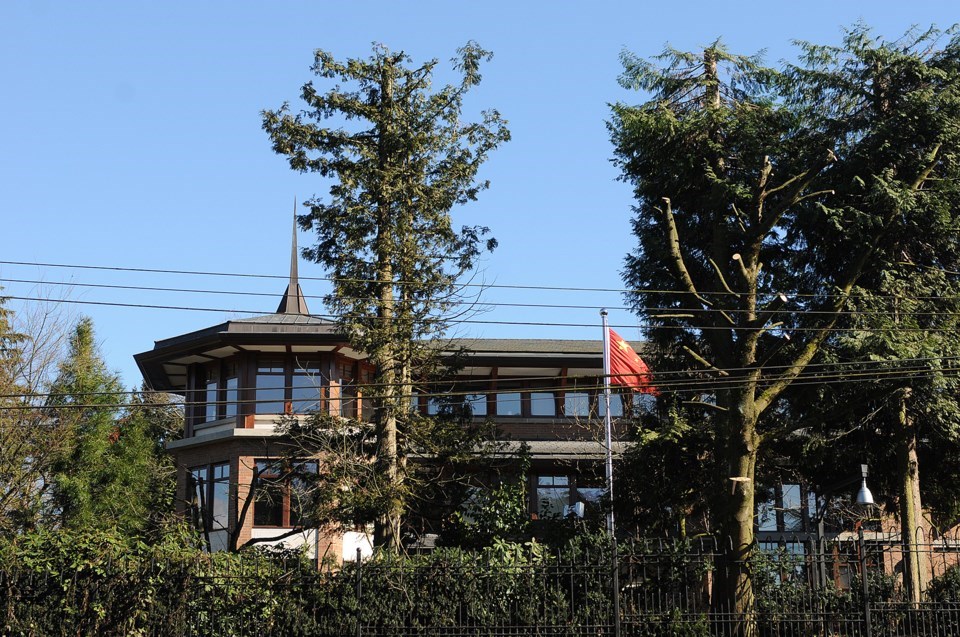Glacier Media reported April 8 that Stewart put a freeze on relations with officials after China recently announced sanctions on individuals in the United States and Canada, including friend and Conservative MP Michael Chong.
The mayor called the tactics “threatening and intimidating” and said his response was also aimed at denouncing the treatment of Muslim Uyghurs in Xinjiang province and the continued detention of Canadians Michael Spavor and Michael Kovrig.
Canada’s parliamentary subcommittee on international human rights, whose members include Chong, and the U.S. State Department’s annual report on human rights concluded “genocide” is occurring in Xinjiang province.
In an emailed statement April 9 to Glacier Media, the Chinese Consulate said “any decision aimed at politicizing normal exchanges between China and Canada is not acceptable.”
“A healthy and stable bilateral relationship will enhance the understanding and confidence of both sides and benefit both peoples,” the statement said.
“The allegations of ‘genocide’ or ‘forced labour’ in Xinjiang are the most outrageous lies of the century. We’ve presented the true situation in Xinjiang on multiple occasions. Xinjiang-related issues are never about human rights, ethnicity, or religion, but about combating violent terrorism and secession.”
The consulate, whose consul general is Tong Xiaoling, said China’s “preventive counter-terrorism and de-radicalization measures” have protected “the basic human rights of people of all ethnic groups in Xinjiang.”
Kovrig and Spavor, meanwhile, are suspected of crimes endangering China's national security and “their litigation rights are fully protected,” the statement said.
“The Chinese judicial authorities try cases in strict accordance with law,” the statement said.
“We hope that the Canadian politicians and people of influence can take off their tinted glasses, respect the truth and the legal system of China and the development path chosen by the Chinese people, remove instead of setting up obstacles in the relationship between our two countries.”
Media reports of the trials of Spavor and Kovrig said no Canadian or foreign diplomats were allowed to attend the recent court hearings of the two men, who were detained shortly after Canadian police arrested Meng Wanzhou in December 2018 at the Vancouver International Airport.
The U.S., which requested Wanzhou’s arrest, is seeking the Huawei executive’s extradition to face fraud and conspiracy charges that concern her company’s dealings with Iran.
Stewart told Glacier Media last week that he had a recent invitation to meet with Cong Peiwu, China’s ambassador to Canada, but turned him down.
Since elected mayor in 2018, Stewart estimated he has met 12 times with various Chinese officials and business people, most of which involved Vancouver-based Consul General Tong Xialong.
Meanwhile, Chong, whom Stewart met when he was an NDP MP, wrote an editorial in the Globe and Mail Monday saying sanctions imposed on him and others was “a clumsy attempt to silence our free speech and open debate, both pillars at the heart of our democracy.”
The sanctions include Chong, who is the Conservatives’ foreign affairs critic, not visiting China or doing business with Chinese companies.
Chong and Stewart authored a book together in 2017 with Liberal MP Scott Simms on reforming democracy in Canada.
@Howellings



